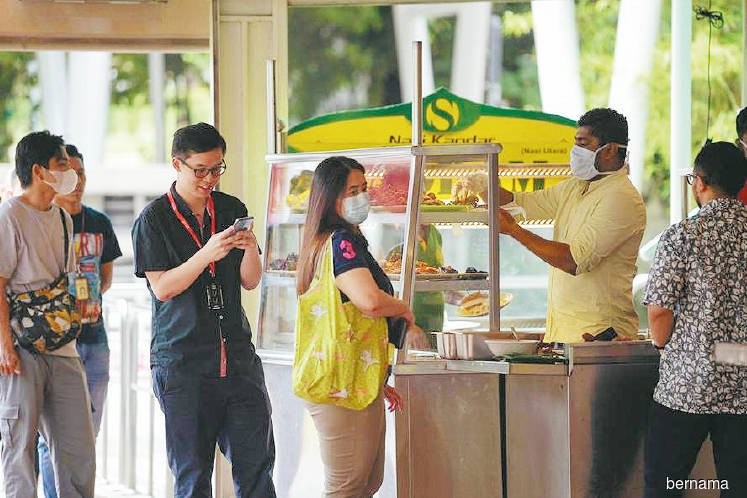
KUALA LUMPUR: Consumption and inflation growth will see a one-off rebound due to low-base effect caused by depressed consumption during the nationwide movement control order (MCO), said the Institute for Democracy and Economic Affairs (IDEAS).
According to its research manager Lau Zheng Zhou, the rebound would depend on how soon the MCO is lifted.
However, due to the ongoing uncertainty, it was more likely that consumption and inflation growth would thread lowly for the rest of the year, and that might be a new normal if the situation persists.
“Private consumption growth is expected to shrink and together with the MCO impact on businesses, there will be deflationary pressure,” he told Bernama.
Asked whether the RM250 billion stimulus package announced by the Prime Minister Tan Sri Muhyiddin Yassin last Friday would nurse the economy back to health, Lau said it would all depend on the Covid-19 situation as it would determine how soon the business and the economy can return to normalcy, even if it is done gradually.
He noted the short to medium-term impact of the MCO would be on liquidity as businesses have to absorb losses for unsold inventories despite having to pay salaries and credit to suppliers.
This would result in business closure, with small and medium enterprises (SMEs) being affected more than large corporations as they do not have much cash reserve.
“Also, by separating ‘essential’ and ‘non-essential’ goods and services, the disruption to supply chain can be massive as machines, component parts, raw materials and other intermediate services are important in order to produce ‘essential’ goods,” said Lau.
He stressed that not relaxing MCO soon would mean production for essential goods, including food, is not guaranteed.
For the medium to long-term impact of within a year, IDEAS expects a global recession to be triggered.
“Even if Malaysia recovers from the Covid-19 peak, we will not be isolated from the falling global demand in trade and investment. But it is expected for the recession to demonstrate a V-curved rebound in 2021.
“So Malaysia is poised to take advantage of the supply chain disruption because multinationals have been rerouting production from China due to the US-China trade war before this and now from Covid-19,” Lau pointed out.
He said that the government would introduce more measures should the MCO be extended again.
“The government has been introducing its measures in phases. From spurring consumption to social protection, the government is expected to address the disruption to SMEs, supply chain and trade next because production capacity is damaged if the MCO is extended for too long.
“We do not want to get out from a health crisis, just to get into an economic crisis,” said added.
On Bank Negara Malaysia’s move to impose a six-month moratorium on loans and financing payments effective from Wednesday, Lau said an immediate deferment is crucial to ensure availability of liquidity so as not to cause large-scale insolvency, which may trigger a crisis by itself. “If businesses fail [across] the board, banks will face higher non-performing loans and hence, [that is] a bigger problem. The banking industry is taking the hit just like all other industries.
“Who knows, this will speed-up cost-saving strategy for banks and see more measures to enhance efficiency through digitalisation or product diversification. After all, there is always opportunity in a crisis,” he added.
Source : https://www.theedgemarkets.com/article/consumption-inflation-growth-see-oneoff-rebound-—-ideas

